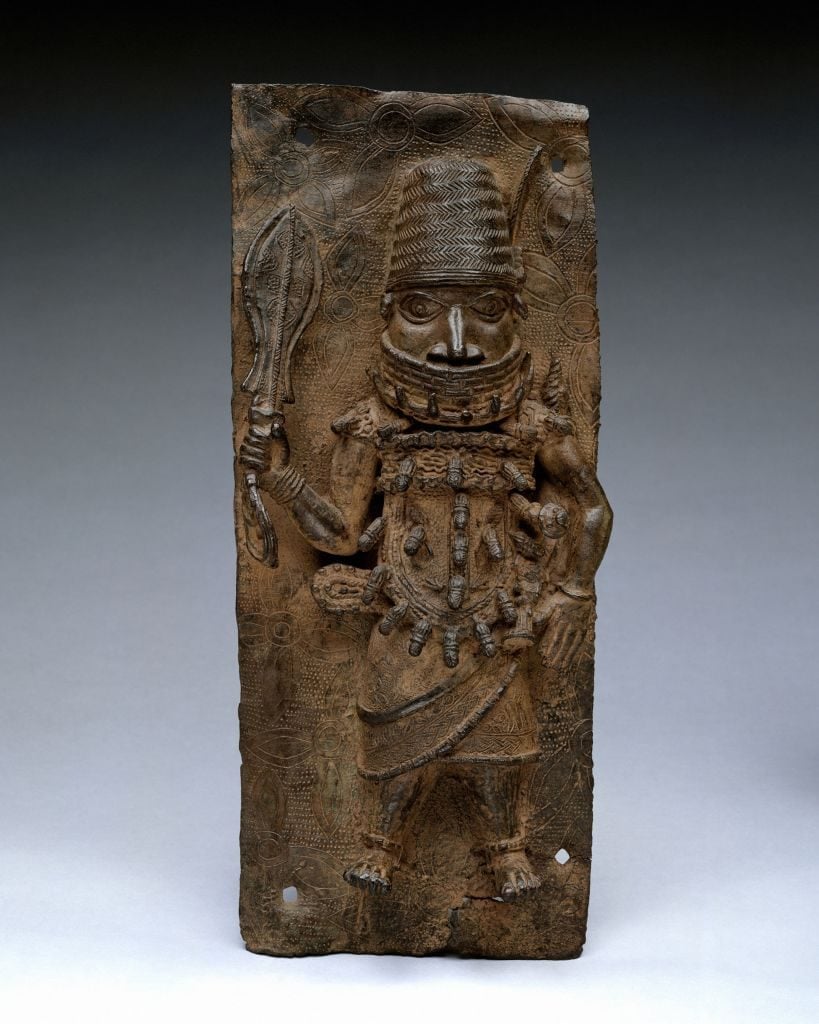Politics
The Metropolitan Museum of Art Will Return Two Benin Bronzes to Nigeria, Putting Pressure on Other Museums to Do the Same
The museum also brokered the return of a third artwork after a collector offered to sell it to the institution.

The museum also brokered the return of a third artwork after a collector offered to sell it to the institution.

Naomi Rea

The Metropolitan Museum of Art will return three artworks, including two Benin Bronzes, to Nigeria, accelerating a fast-moving development to repatriate the nation’s treasures, which were looted by British forces in the late 19th century.
The three artworks headed to the Nigerian national collections are two 16th-century brass plaques created at the Court of Benin and a brass head produced in Ife sometime around the 14th century.
The museum made the announcement yesterday, June 9, alongside the Nigerian National Commission for Museums and Monuments. The bronzes have been formally deaccessioned and will be stewarded to Nigeria by the commission’s director general, Abba Isa Tijani, at a later date.
“We sincerely appreciate the transparency exhibited by the Metropolitan Museum of Art regarding issues leading to the return of these objects,” Tijani said in a statement.
The two brass Benin plaques, one of a warrior chief and the other of a junior court official, are two of the works that were looted from the Royal Palace by British troops during a punitive expedition in 1897.
The plaques were sent to the British Museum and later transferred, along with 24 others, to the National Museum in Lagos in 1950. Their trajectory after that is foggy. They were never officially deaccessioned from the Nigerian museum, but were traded at some point on the market and ended up in the hands of a New York collector, who gifted his collection to the Met in 1991.
The Met brokered the return of the third artwork, a 14th-century brass Ife head, after another collector offered to sell it to the museum. According to the Met, the person mistakenly believed the work could be legally traded.
Over the past year, Western museums have faced increasing pressure to share information about the Benin items from their collections, and to return stolen objects. As a result, the Met undertook joint research on its collection with the British Museum and reached out to the Nigerian commission with its findings.
The Met, which holds 160 additional Benin objects, is also partaking in the Digital Benin project, adding to an international database in which information about the works is being stored and shared.
The news about the restitution comes on the heels of Germany’s landmark announcement that it will begin to return Benin bronzes from its national collections starting next year.
Nigeria’s minister of information and culture, Alhaji Lai Mohammed, is now urging other museums to reconsider their holdings of African artworks taken from the continent during the colonial period.
“Nigeria enjoins other museums to take a cue from this,” he said in a statement. “The art world can be a better place if every possessor of cultural artifacts considers the rights and feelings of the dispossessed.”
Among the museums that have the largest collection of Benin Bronzes are the British Museum, which holds 928 works, and the Weltmuseum in Vienna, which holds 173.